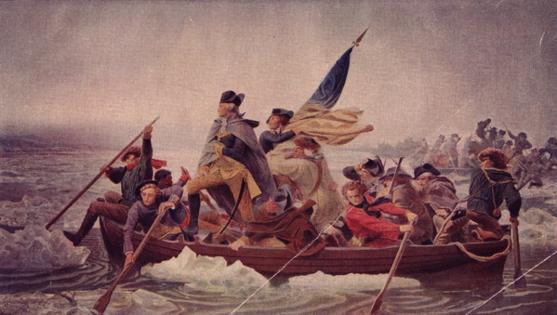Rick Kogan: Ken Burns documentary explores the blood, courage and hope of 'The American Revolution'
Published in Entertainment News
CHICAGO — Thirty-five years ago, I stood with filmmaker Ken Burns at what was then called the Chicago Historical Society (now the Chicago History Museum). He was telling me some advice that Southern novelist and historian Shelby Foote had recently given him: “God is the greatest dramatist — just tell the story.”
It was September 1990, and Burns said that was what he tried to do in the soon-to-premiere “The Civil War,” a television documentary that would forever change the face and pace of documentaries, remarkable in dozens of ways and in which Foote would be one of the most prominent of dozens of voices.
Burns was 37 years old, boyish looking in the extreme and passionate in conversation. He talked of his previous documentaries, “The Brooklyn Bridge” and “Statue of Liberty,” each nominated for Academy Awards and others, “The Shakers: Hands to Work, Hearts to God” and “Huey Long.”
Nothing he said could have prepared the viewing public for “The Civil War,” which was stunningly popular, called a “masterpiece” by The New York Times, winner of Emmys and a Peabody and sparking new interest in American history.
That was then.
Now, Burns is back with “The American Revolution,” a six-part, roughly 12-hour documentary that debuts Sunday night on PBS and carries on over the next five nights. Clear your calendar.
It has been 10 years in the making. Burns directs in collaboration with Sarah Botstein and David Schmidt, and the budget is more than $30 million. (By comparison, “The Civil War” cost $3.2 million). Historian Geoffrey C. Ward, author of 20 of Burns’ documentaries and the books that accompany them, is back on script, the enlightening result of tireless research and the gathering of nearly 20,000 maps, documents, lithographs, broadsides, paintings, newspapers and other materials from hundreds of museums, libraries and archives.
Buddy Squires, Burns’ longtime cinematographer, and his crew filmed hundreds of re-enactors and historical interpreters across what were the original 13 colonies. Using drones, we see soldiers and sailors, but also farmers, blacksmiths and “ordinary folk.” There is an intimacy to the footage, chills too, in 36 battles.
Cameras zoom, cut and pan through illustrations in a way that drags viewers into the events. Battle scenes — from sites famous and just sad — explode from the screen, brutal and bloody. And voices come at us powerfully. Principal narrator Peter Coyote is perfect, and so are such other stars (working for minimum fees) as Kenneth Branagh, Adam Arkin, Claire Danes, Tom Hanks, Meryl Streep and Mandy Patinkin as Benjamin Franklin.
Yes, all the “big names” are accounted for and you will be stunned by George Washington (voiced by Josh Brolin). Yes, “father of the country” and all that, but also a slave owner, ruthless, intense and unforgettable. As historian Annette Gordon-Reed puts it, “He was the glue that held people together. We would not have had a country without him.”
Still, many of the real treasures in these many hours are those so-called “regular folks” who play extraordinary roles. In meeting them, it will occur to you how little you know about this topic. The American Revolution has been so deeply buried in the past now, blown off in quickie grammar school lessons, that it has been, as Burns has said, “encrusted with the barnacles of sentimentality and nostalgia.”
Yes, the success of “Hamilton,” so upbeat and inclusive, might have sparked interest in these times and their characters, but this series is after bigger and deeper pleasures and complex understandings.
Well, here is “The American Revolution” in all its racial and political twists and turns, Native American bravery and tragic dispossession, told with emotional depth and striking factual detail. The film calls its topic “the most consequential revolution in history,” a series of events that “changed the course of human nature.”
You’ll get no argument from me
As the country moves toward this summer’s July 4 bash to end all July 4 bashes (the country’s 250th birthday), watching this series will prepare you, all of us, to confront some hard truths but also to marvel at what was created by some determined people with a collective desire (a burning passion) to be free.
I have no idea what Ken Burns plans next. In an interview last month in The New York Times, he said, “I just really hope the film has an ability to speak to the people who are concerned about the direction of the country, whoever that might be. This spectacularly inspiring story of our founding, as dark and complex as it is, has — I think, I hope — the ability to add something to the conversation right now that is unifying.”
It’s hard to imagine there is another documentary mountain for him to climb. In promoting his latest achievement, he has been saying on the radio and in print that the American Revolution was “the most significant event in human history since the birth of Christ.”
You have no choice now but to watch and see if you think he’s right.
———
(Rick Kogan is a columnist for the Chicago Tribune.)
———
©2025 Chicago Tribune. Visit chicagotribune.com. Distributed by Tribune Content Agency, LLC.













Comments